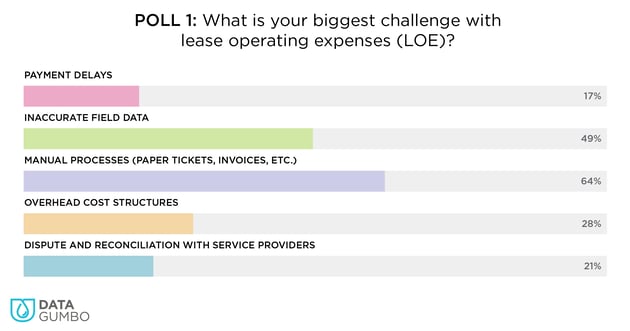Oil & Gas Needs a Real-Time Mindset
If this year has taught us anything, it’s be prepared for the worst case scenario — perhaps the bumper sticker of 2020. Business as usual was quickly usurped by the COVID pandemic and commodity prices touching down to a 30 year low. Coupled with a crippling lack of demand, oil & gas companies have been left with little choice: adapt to the low-priced oil environment and cut costs, or face dire consequences like layoffs, bankruptcies and other down-market results.
Other industries faced with similar challenges pivoted: health care switched to telehealth services, retailers segued into contactless shopping and delivery options, and Google and Apple dove into contact tracing. Oil & gas players must follow suit. Beyond ensuring employee safety and operational stability, the industry is evolving in favor of cost-efficient, flexible business models and technologies that allow for long-term resilience.
One of the most critical advances occurring right now is operators moving from an estimated forecast production model to one that involves a real-time mindset, able to finally tie productivity to spend. To understand costs as they unfold instead of depending on lagging invoices, payment delays and administratively-taxing dispute and reconciliation processes that obscure financial management, operators are deploying smart contracts powered by blockchain technology to ensure transactional certainty and enable real-time LOE.
Gone is the rear view mirror view of LOE with its vast flaws and inaccuracies. It’s time operators look through the windshield at the view ahead.
Why Real Time?
Historically, the oil & gas sector works in debt, amid a desperate need to generate better returns on investment (ROI). Embracing a real-time mindset to tackle these issues is possible through the use of smart contracts to ensure cost savings, transparency, and deliver visibility, all without the need for additional capital investment.
The opportunity is tremendous for operators to regain control of their fixed well-costs and improve cash flow. Industry predictions pre-COVID projected spend at around $70,000-100,000 a year to maintain a single well; an amount that is difficult for companies operating in the realities of today’s razor-thin margins.
Blockchain technology functions as an immutable record that verifies and corroborates real-world physical events and services. Smart contracts operate as a series of if:then computer codes that can automate contract execution by using blockchains capabilities. To digest the physical events and services rendered, smart contracts tap operating field data sources to pull in real-time measurements and metrics. For example, instead of relying on manual service tickets, data can be sourced from existing legacy systems, sensors, drones and other business processes to capture a neutral record of truth instead of outdated invoices and estimates of services performed.
Granular real-time information then better informs business decisions based on what needs to happen in the now to improve cost-structures and promote profitable production within existing wells. This process can help operators decrease OPEX, CAPEX while improving sales, thus saving millions of dollars.
The Time for Real Time is Now
Oil prices may have risen in the near term, but the industry expects hundreds of oil & gas companies to file for bankruptcy by the end of 2021. While smart contracts won’t prevent bankruptcies, operators can utilize smart contracts to power a real-time mindset that allows direct understanding between spend production and profitability. By replacing laborious, paper-based manual processes, operators can capture value — ranging into the multi millions — that’s currently being left on the table.
--
Data Gumbo will host a webinar, “Empowering Real-Time LOE,” on September 23 featuring participants Alan Carnrite, CEO, The Carnrite Group, an energy and industrial sector management consulting firm and Andrew Bruce, CEO, Data Gumbo. Details and registration available here.
.png?width=1280&name=Real-time%20LOE_Journey%20RTL%20(2).png)

